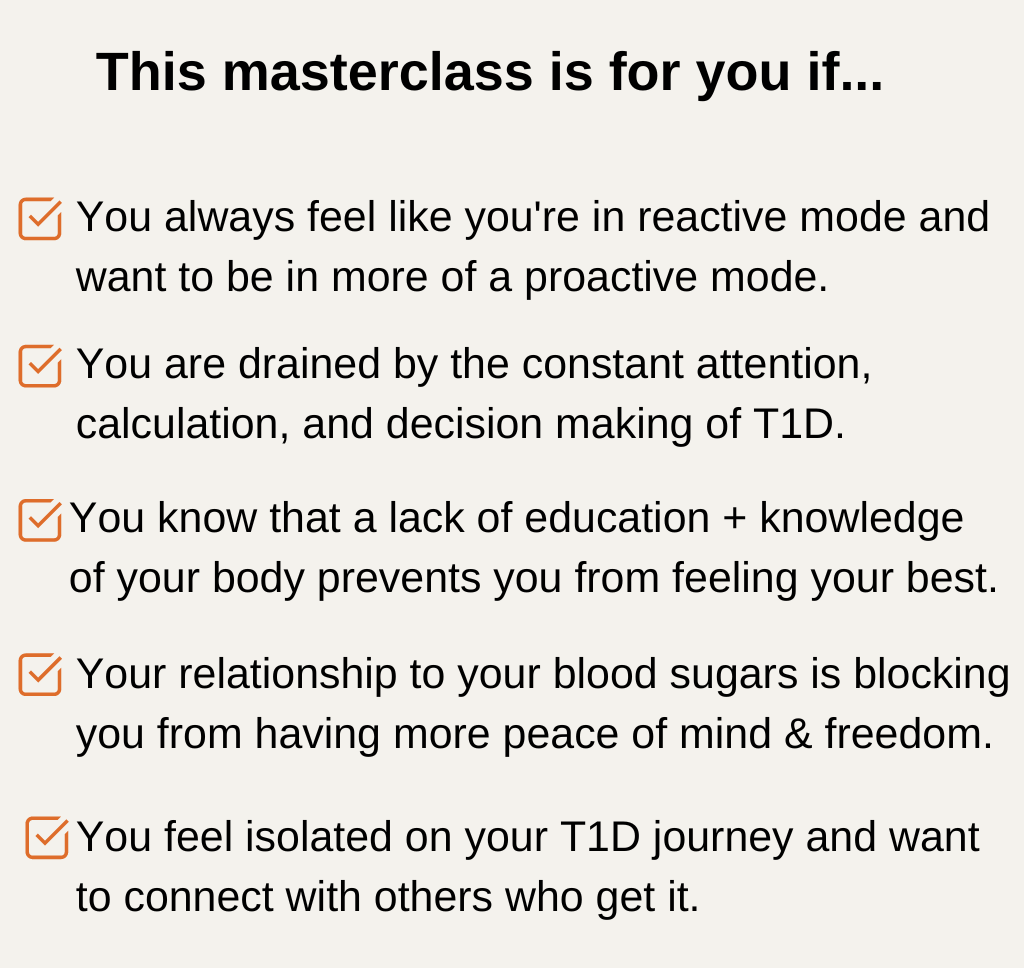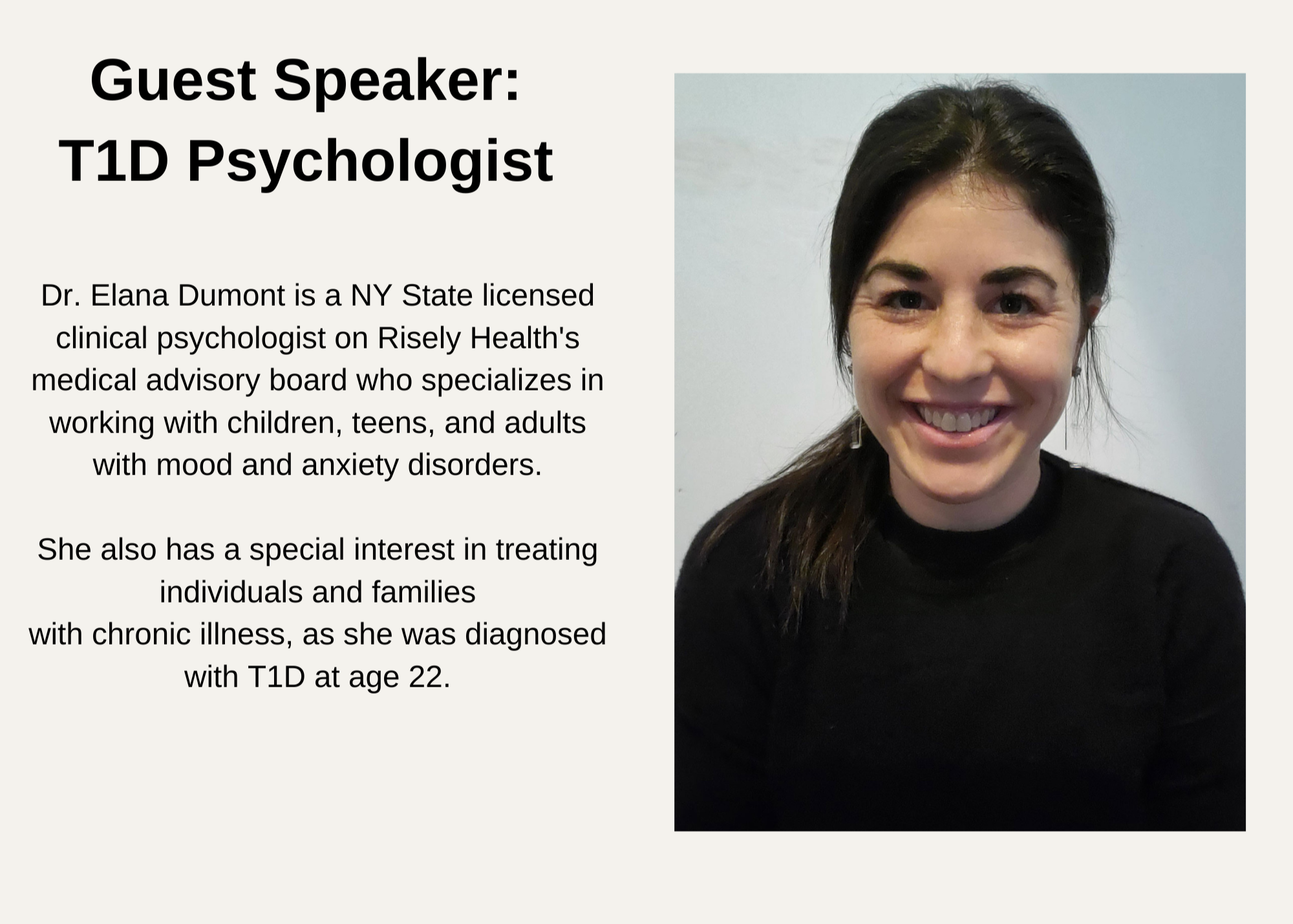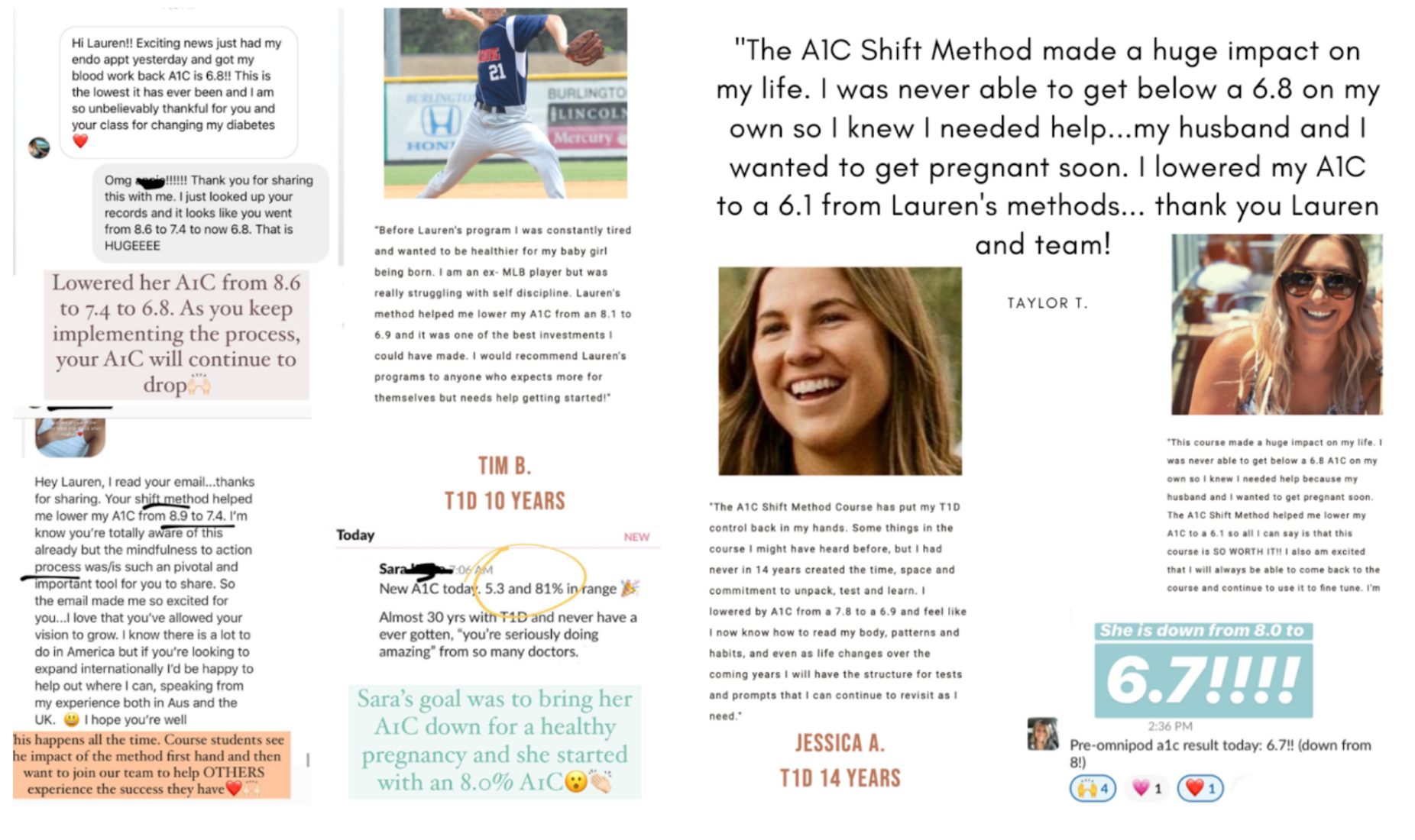


Of course you know this but, some people don't...👇
Prolonged significant diabetes distress is associated with depressed mood and elevated A1C.
Between 20 and 40% of people living with T1D experience…
- feelings of powerlessness and overwhelm due to daily management demands
- fear of low blood sugars and negative self talk with high blood sugars
- worries about future health complications
In fact, depression and anxiety symptoms are twice as prevalent among people with type 1 diabetes than people without diabetes. Ugh...sigh, right? [American Diabetes Association]
But, when's the last time your doctor talked to you about...
👉How to overcome your fear of out-of-range blood sugars?
👉How to avoid running high just to not go low?
👉How to reframe a mindset of judgment and self-criticism into one of curiosity and self-compassion?
👉How to navigate the mental gymnastics of monitoring food, activity, and insulin intake 24/7?
The truth is: sustainably lowering your A1C requires more than diet and exercise alone.
You need to address the mental and emotional pieces of living with T1D.
If you...
- have tried every meal plan and still don't have the blood sugar control you want
- feel like maintaining your A1C takes all of your energy
- are ready to dig deeper and learn how to create real change
Then you are exactly who this 75- minute FREE virtual masterclass is for.


The road to more T1D confidence doesn't have to be overwhelming. We're here to help.


